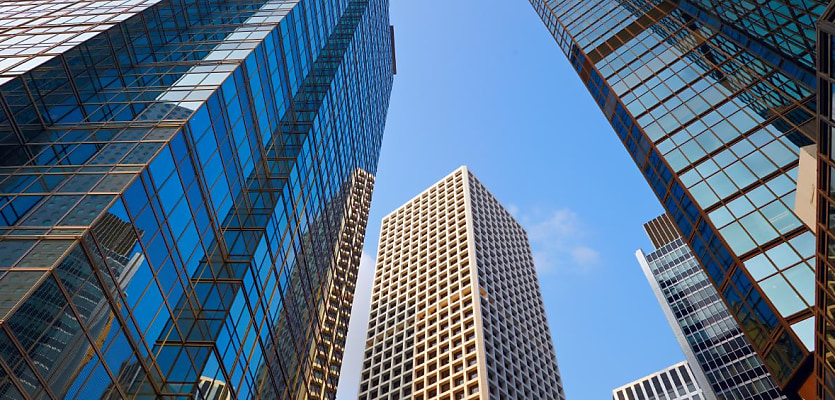With environmental and social goals rising on the priority list of organisations, a new report revealed that sustainability should be at the top of commercial real estate leaders’ thinking when “futureproofing” their portfolios.
The results of JLL’s latest survey of 1,000 corporate leaders showed that 83 per cent of firms in the Asia-Pacific region now see sustainability as a “board-level agenda”.
Another key finding in the survey is that eight in 10 companies say their employees expect their workplaces to have a positive impact on the environment.
And with buildings responsible for 60 per cent of carbon emissions in cities, the report found that organisations are facing increasing pressure to deliver clear outcomes in the race to net zero and create social value through commercial real estate.
As a result, the report underlined that “green credentials” — including green-certified buildings, green leases and office retrofitting — should be a top priority for corporate real estate (CRE) leaders looking to achieve sustainable property portfolios.
JLL’s head of capital markets for Australia Fergal Harris said that measures like sustainability commitments for commercial property assets should be a “continuing focus”.
And while it feels like a safer bet to wait till the current macroeconomic conditions improve to rethink their office spaces, invest in new technology and prioritise sustainability, he advised clients against waiting to call bottom.
“Get ahead of the next cycle by focusing on future proofing your portfolio, upgrading or repositioning assets to protect income. Focus on sustainability,” he stressed.
Additionally, he stated that office assets with amenities that provide positive health and wellness outcomes for tenants would remain more competitive in a future where the needs of office occupiers are evolving.
“There’s increasing pressure on building owners as climate dates approach and brings increased risks for low graded or non-graded commercial property assets,” he commented.
By adopting sustainability measures, the executive said that the market would also be prepared for any environmental reporting or minimum standards that become mandated by regulatory authorities in the future.
“It’s really about having your strategies in place to position your assets post the reset of the market,” Mr Harris said.
According to JLL chief executive for Asia-Pacific region Anthony Couse, the next three years will prove to be an “inflection point” for the real estate sector.
“[The] changes accelerated by the pandemic represent an opportunity to pause, think about long-term real estate strategy and how it aligns with future business priorities,” he stated.
With 77 per cent of employees stating that the office will remain central to their organisation’s long-term work ecosystem, Mr Couse highlighted that CRE leaders should take up the challenge of redesigning and developing office spaces that are sustainable and cater to environmental and social aspirations, and demands of the future workforce.
But he offered that the “greenest” building is already in existence and that a portfolio’s decarbonisation roadmap can begin at retrofitting existing buildings.
“Approximately 80 per cent of the building stock that will be standing in 2050 has already been built. That means knocking down an old building to build a new and greener building will be more environmentally detrimental than retrofitting an existing one,” Mr Couse explained.
The executive said that the challenge now lies in accelerating the current pace of retrofitting to surpass 3 per cent per year to hit the long-term target.
The report showed that 56 per cent of organisations in the Asia-Pacific region already plan to refit or redesign their office space in the next 12 months.
According to the global commercial real estate firm, this can be an opportunity for CRE leaders to incorporate sustainability features, including energy-efficient facilities and circular design principles, into their future-fit, sustainable office.

Never miss a beat with
Stay across what’s happening in the Australian commercial property market by signing up to receive industry-specific news and policy alerts, agency updates, and insights from reb.
Subscribe to reb Commercial:









You are not authorised to post comments.
Comments will undergo moderation before they get published.